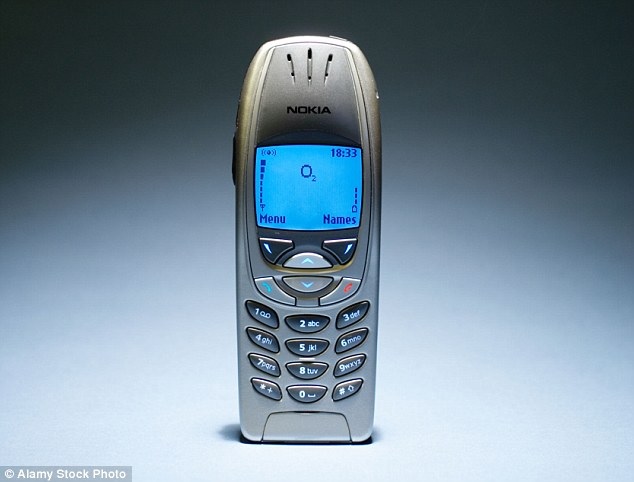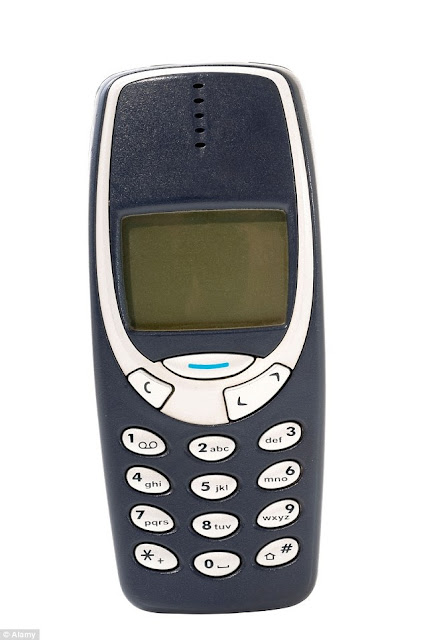Expensive and high-tech gadgets they may be - but new research has found today's smartphones simply do not work as well as the more basic mobile phones from a decade ago.
A study carried out by industry regulator Ofcom has found the no frills handsets of the past provide better signal performance for making calls and sending texts than modern smartphones sold by the likes of Apple and Samsung.
Tests conducted in laboratory conditions showed that despite being packed with technology, smartphones are not as good at picking up weak signals as cheaper devices.
New research has found today's smartphones simply do not work as well as the more basic mobile phones from a decade ago (file photo)
The Ofcom research also found that some smartphones tested required a minimum signal which is 10 times stronger than what is required by non-smartphones currently on the market just to make or receive calls.
On average, the smartphones examined required a signal at least seven times stronger than the average non-smartphone on the 2G network.
The worst smartphone on the 3G network required a signal which is nine times stronger than the minimum level recommended by the GSMA, the standards body for the mobile industry.
On the 4G network, the worst performing smartphone required seven times the recommended signal strength to send data.
Ofcom's findings support claims that the glass and metal used in smartphones, as opposed to the plastic used in cheaper mobiles, are responsible for calls cutting off.
It also provides clear evidence of the role handsets play in signal coverage, alongside the investment in infrastructure which is required to improve coverage nationally, especially in rural areas where masts tend to be further apart and provide a weaker signal.
According to the research, which will be used to create detailed mobile coverage maps, even the hand you use to make a call can affect the chances of a call being cut off due to the position of the antenna and whether it is covered by the user's fingers.
Ofcom refused to identify the smartphones used in the research, claiming there was an insufficient number of phones tested to make signficant comparisons between individual smartphones.
A spokesman said: 'We tested a very small number of mobile phones, not for ranking but to understand how handsets performed in different situations.
'As no one device consistently outperformed the others we chose not to list the handsets.'












No comments:
Post a Comment